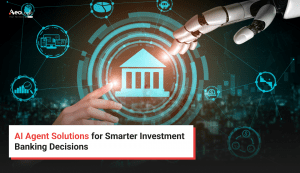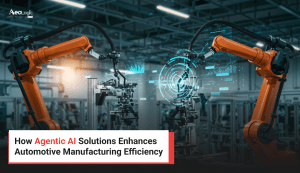The technological revolution is knocking on the doors of the agriculture industry with the introduction of Big Data. The collection and analysis process of Big Data not only acts a vital role in augmenting the productivity of individual farms. However, it also proves helpful in eliminating the risk of a global food crisis. The role of big data in the agriculture industry can act as a real game changer for the sector.
Today, there is a requirement to produce more food to feed the increasing population while using less land for it. Nonetheless, the government is confronted with challenges due to climate change and environmental issues that have a direct impact on food production. To attain this food production target, policymakers and industry leaders are taking support from technological innovations such as Big Data, IoT, Cloud Computing, etc. These technological advancements prove highly beneficial in enhancing operations and boosting productivity.
Also read: The Role of Big Data in Digital Transformation
The Role of Big Data in the Agriculture Industry
The role of big data in the agriculture industry is entirely based on using technology, information, and analytics to get useful information to farmers. Big data can be utilized for receiving information about the agriculture industry or it can prove beneficial for any particular segment or area to improve its efficiency. Data mining processes are utilized by Big Data to build such vital information. With this methodology, you can identify the important patterns in a huge set of data and condense this information into useful forms. Furthermore, there are different modern systems, such as machine learning statistics, artificial intelligence, and more, that are used in the big data mechanism.
The Impact of Big Data on the Agriculture Sector
With smart farming and precision agriculture practices, farmers will not only be able to save costs but also grab new business opportunities.

Supply Chain Management
The introduction of Big Data is helping in boosting the agricultural supply chain’s efficiency by delivering effective tracking and optimization options for delivery truck routes. Subsequently, this is making the food delivery cycle convenient to track from producer to market. It is ensuring that food will not go to waste in the process. With this, farmers receive real-time information about their products. Whereas, distributors and retailers also get the correct information about current market trends to improve their offerings. In short, the role of big data in the agriculture industry is helping companies to optimize their food delivery systems, save time on transportation, and maintain the right production volume.
Meet Customer Food Demand
Using the existing farmland in a resourceful way is the best way to satisfy the increasing demand for food. But the thing is, how does big data assist in it? Therefore, farmers are using Big Data to get information on changing weather, fertilizer usage, rainfall, and other factors that are impacting crop yield. All of this information is assisting farmers in making accurate and dependable decisions that are maximizing their productivity from cultivating the land.
Pesticides and Fertilizer
Big Data helps in assisting farmers in making informed decisions about which pesticides to use, when, and where. Therefore, with this type of monitoring and assistance, farmers can avoid the overuse of chemicals. Also, it is benefiting by boosting farmers’ profits by saving their expense of buying unnecessary pesticides.
Yield Prediction
Yield prediction is a technology and algorithms used for collating. And analyzing information on chemicals, weather, vegetation, and more to make the right decision for growers. Using sensors for data collection, which mitigates the burden of manual work and provides better insight into yield prediction.
Minimize Cost
This will be directly impacting the costs incurred by the farmers. The role of big data in the agriculture industry is improving efficiency, which saves farmers money as well as helps them boost their vital processes.
Food Safety
Food-related diseases and illnesses are the major concerns that affect millions of people each and every year. Modern farming is allowing farmers to detect microbes and signs of contamination instantly. It can be performed by data collection on humidity, temperature, and chemical usage that affect growing plant health.
Also read: How AI is Transforming the Agriculture Industry
Wrapping Up…
The introduction of Big Data Analytics has influenced the major sectors of the economy and continues to do it. The implementation of Big Data in the agriculture sector is in its early stages but proves to be beneficial in addressing the key concerns. If you are looking for a professional company for Big Data Development services then we are here to help you.
Contact us today to discuss your project requirements.
FAQs
How big data analytics are impacting the agriculture industry?
The introduction of Big Data technology helps in boosting the agricultural supply chain’s efficiency by offering effective tracking. And optimization options for delivery truck routes. This creates a food delivery cycle convenient to track from producer to market. Hence, making sure that food will not go to waste in the process.
What is the role of big data?
Companies are using big data in their systems to improve operations, offer better customer service, and build personalized marketing campaigns. And take other actions that can increase revenue and profits.









